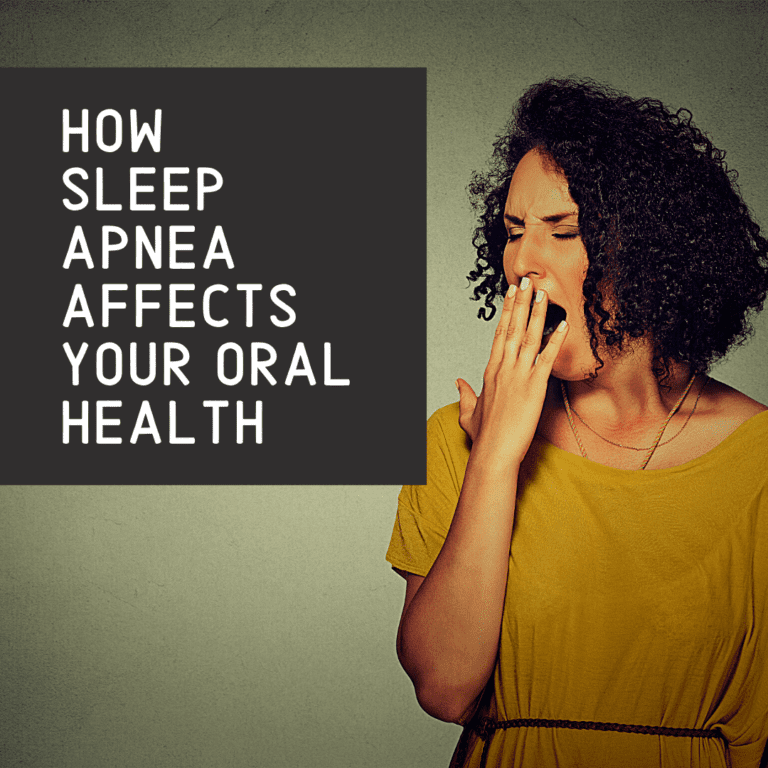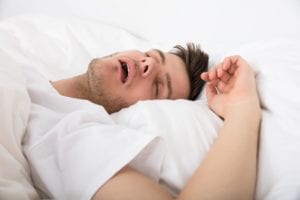How Sleep Apnea Affects Your Oral Health

When asking people what types of things affect their oral health, most people would say things like oral hygiene and dietary habits. Although these things do play a large role in one’s oral health, they are not the only things that affect your oral health. In fact, many people don’t realize that certain medical conditions can also impact their oral health. One medical condition that impacts the oral health of many people without them realizing it is sleep apnea.
Sleep apnea is generally classified as a sleep disorder. There are three different types of sleep apnea, including: obstructive sleep apnea (OSA), central sleep apnea, and complex sleep apnea. Out of these three types, obstructive sleep apnea is the most common. OSA occurs when the upper airway collapses or narrows while sleeping, which restricts air flow and causes breathing to pause for a few seconds to a few minutes. Mild cases can cause snoring, while more severe cases can actually cause you to wake up gasping for air.
The primary effects of sleep apnea are daytime sleepiness and distress from a lack of sleep, which causes both physical and mental fatigue. Additionally, sleep apnea presents secondary effects that directly affect your oral health. Here are some of the oral health problems that sleep apnea can cause:

Bruxism
Bruxism is a term used to describe teeth grinding and clenching. Oftentimes, people with sleep apnea also develop bruxism, although the link between the two is still unclear. Some researchers believe that the motion of grinding the teeth helps to open up a collapsed airway, while other researchers believe that teeth grinding can stimulate saliva production to lubricate the airway.
Dry Mouth
When the body is not getting enough air, the natural response is to open the mouth. In fact, two common symptoms of sleep apnea are snoring and gasping for air. Both of these symptoms force air to be inhaled through the mouth, which dries out the oral cavity. Since saliva production is already decreased at night, dry mouth becomes a real problem for those with sleep apnea. Unfortunately, this significantly increases the risk of tooth decay and gum disease, since saliva is responsible for keeping the mouth clean. Not to mention, dry mouth can also dry out the throat and cause irritation.
TMD
Temporomandibular joint disorder (TMD) is a dysfunction of the jaw joint caused by overexertion. Sleep apnea is seen as a risk factor for developing TMD since it can potentially cause more stress on the jaw joint. First, people with sleep apnea are more likely to grind their teeth, which generally results in TMD. Additionally, people with sleep apnea often hold their lower jaw forward to open up their airway, which also places stress on the jaw joint and predisposes them to developing TMD.
Overall, sleep apnea is an unfortunate condition that threatens both your sleep quality and your oral health. As such, it is recommended to seek treatment for sleep apnea to improve your sleep quality and oral health. In some cases, your dentist may identify possible signs of sleep apnea at your next dental appointment. Depending on your individual case, they may recommend seeing a sleep specialist. They may also recommend wearing a nightguard to help manage your symptoms.






Recent Comments